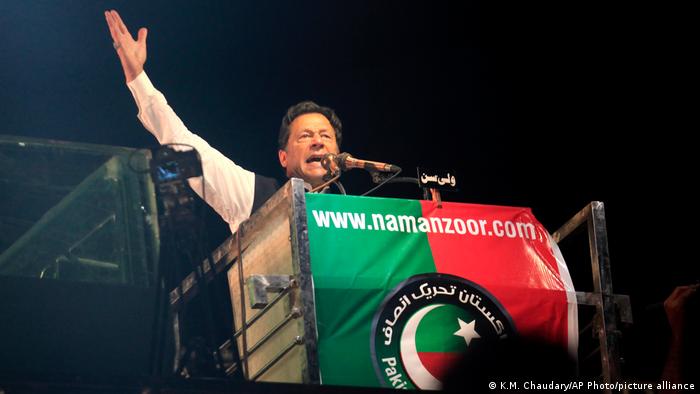By Staff Reporter
ISLAMABAD: Pakistan Tehreek-e-Insaf (PTI), the party founded by former prime minister Imran Khan, has been stripped of its leader, a day after the country’s election commission removed the party’s symbol ahead of the national elections scheduled for February 8, 2024.
The Election Commission of Pakistan (ECP) on Sunday released an updated list of 175 officially registered political parties, which did not include Khan as the head of PTI, leaving the party without a leader. The list, though, incorporated a faction led by Pervez Khattak, a former ally of Khan, who broke away from PTI and formed his own group, Pakistan Tehreek-e-Insaf Parliamentarians (PTIP).
Khan, who founded PTI in 1996 and led it to victory in the 2018 elections, has been facing a series of legal troubles since he was ousted from power in a no-confidence vote in April last year. He is currently in jail in Rawalpindi, facing charges of leaking state secrets.
Khan also faces several other cases related to corruption, sedition, and defamation.
The party also lost its election symbol, the cricket bat, which was a reference to Khan’s previous career as a cricket star and World Cup winner. The ECP decided to remove the symbol after declaring PTI’s intra-party elections null and void, following a petition filed by a dissident founding member. The ECP said the PTI had failed to hold a fair and transparent intraparty election, and therefore was ineligible to obtain the bat symbol that it had applied for.
The PTI announced on Saturday that it would challenge the ECP’s decision in court, and accused the election commission of being biased.
The loss of the party’s symbol, the cricket bat, and the leader status means that Khan and his supporters will not be able to use the PTI’s name, logo, or manifesto in the upcoming polls. They will also have to contest as independent candidates, unless they join another party or form a new one.
Despite his legal woes, Khan has vowed to fight the elections and challenge the ECP’s decision in court.
His lawyers filed his nomination papers on Saturday in Lahore, where he plans to contest for the seat in the National Assembly, the lower house of Parliament. Khan also filed his nomination papers for another seat in his hometown of Mianwali.
However, his eligibility to run for office remains uncertain, as the courts have yet to decide on his cases.
Among the registered entities, the most notable is the Istehkam-e-Pakistan Party (IPP), led by President Abdul Aleem Khan. The IPP is widely seen as a proxy of the powerful military establishment, which has been accused of meddling in the country’s politics and undermining civilian rule. Most of the IPP members are former leaders of the PTI.
The list also includes several other notable parties, such as the Punjab-centric Pakistan Muslim League-Nawaz (PML-N), led by Shehbaz Sharif, the brother of former Prime Minister Nawaz Sharif, who returned to Pakistan after a self-exile of almost four years; the Pakistan Muslim League-Quaid (PML-Q), led by Chaudhry Shujaat Hussain, a former prime minister; and the Pakistan Peoples’ Party (PPP), led by Bilawal Bhutto Zardari, the son of former Prime Minister Benazir Bhutto, who was assassinated in 2007.
Former president Asif Ali Zardari is registered as the leader of the Peoples Party Parliamentarians.
The pro-military the Balochistan Awami Party, which rules the restive southwestern province, is registered under the leadership of President Abdul Quddus Bizenjo, while the Awami Muslim League Pakistan (AMLP) is listed under the leadership of President Sheikh Rashid Ahmed, a vocal pro-military leader.
Other notable parties include the Awami National Party (ANP), a secular and nationalist party led by Asfandyar Wali Khan, the Balochistan National Party (BNP), a tribal party led by Akhtar Mengal, and the Jamaat-e-Islami, a religious party led by Sirajul Haq.
The list also includes the Jamiat Ulema Islam, a pro-Taliban party led by Maulana Fazlur Rehman, and the Muttahida Qaumi Movement Pakistan (MQM-P), an ethnic party that represents the Urdu-speaking community in Karachi, led by Khalid Maqbool Siddiqui.
The national elections are scheduled for February 8, 2024, and are expected to be a close contest between the PTI and the PML-N.
Copyright © 2021 Independent Pakistan | All rights reserved




